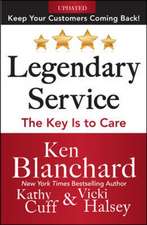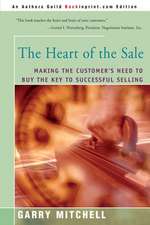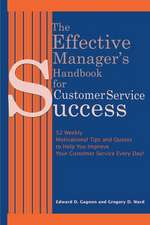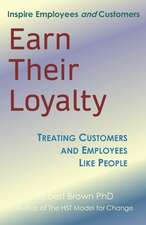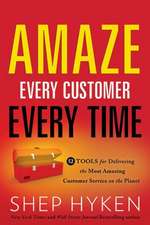Effective Customer Relationship Management: How Emotion Drives Sustainable Success
Autor Amy Carson Sauersen Limba Engleză Hardback – 30 iun 2008
Preț: 564.28 lei
Preț vechi: 613.35 lei
-8% Nou
Puncte Express: 846
Preț estimativ în valută:
107.99€ • 117.26$ • 90.71£
107.99€ • 117.26$ • 90.71£
Carte tipărită la comandă
Livrare economică 22 aprilie-06 mai
Preluare comenzi: 021 569.72.76
Specificații
ISBN-13: 9781604975147
ISBN-10: 1604975148
Pagini: 220
Dimensiuni: 140 x 216 x 16 mm
Greutate: 0.43 kg
Ediția:New.
Editura: Cambria Press
ISBN-10: 1604975148
Pagini: 220
Dimensiuni: 140 x 216 x 16 mm
Greutate: 0.43 kg
Ediția:New.
Editura: Cambria Press
Descriere
By 2005, companies worldwide had created a $76-billion customer relationship management (CRM) software industry. These pioneers strove to streamline their customer transactions and maximize touchpoints over the lifecycle. On average, these dedicated, innovative firms spent the better part of a year implementing expensive CRM systems and renewing maintenance contracts. After all this devotion, investment, and IT integration, how could it be that up to 70% of CRM projects "fail to live up to expectations"? This book investigates the reason for relationship marketing's failure, and uncovers that this failure is not due solely to CRM IT implementation and strategy problems. The failure to establish long-term relationships with customers is because companies and research have ignored the emotional-relational component of developmental stages in human relationships. Relationship marketing is incomplete unless it models the stuff of real interpersonal relationships - developmental stages, trust, emotional mechanisms, and deeply felt commitment. This thesis is supported most strongly by the critical finding that emotions (rather than simply transactions or other success factors) are the primary drivers of stage progression. Therefore, traditional CRM software and, by implication, the relationship marketing vision of the firm is simply looking in the wrong place. The CRM technology itself tends to obfuscate the naked realization and raison d'etre, as James Autry profoundly mused, that "There is no business, there are only people." The research in this book empirically maps the customer's emotional-relational journey, so that marketing may be better able to connect on an emotional level to "where customers are" in the relationship stages to earn, not only commitment and profits, but also relational well-being.


